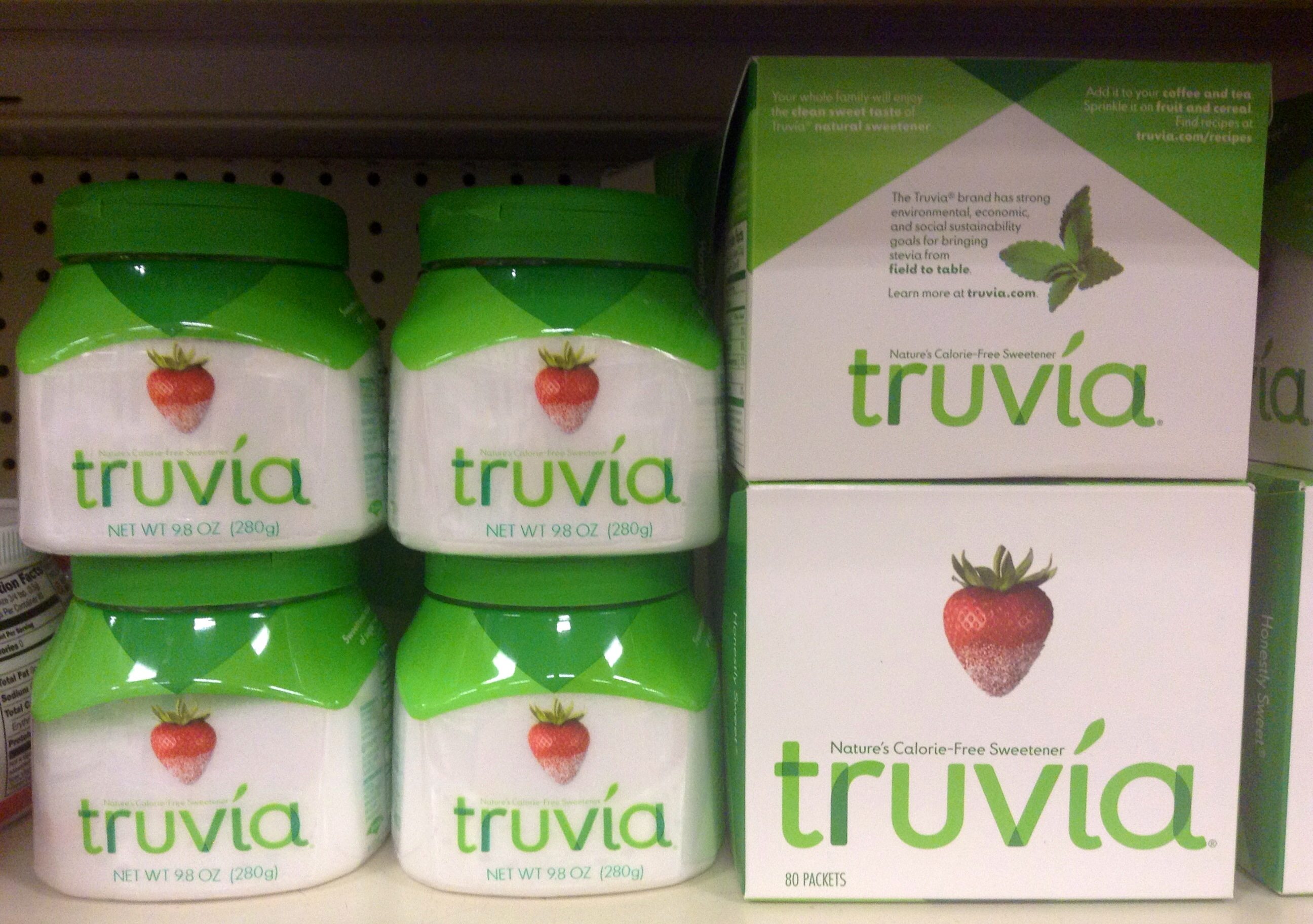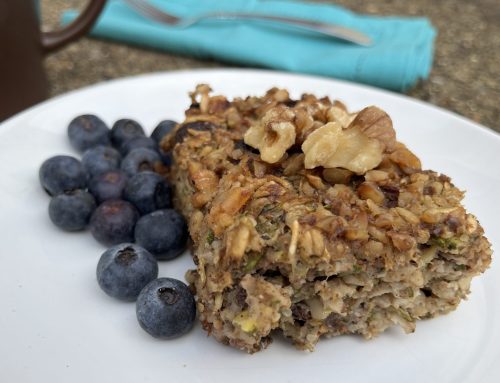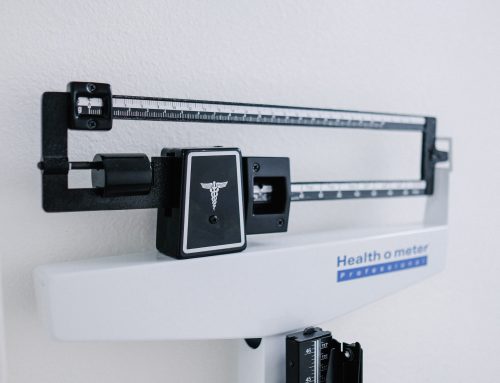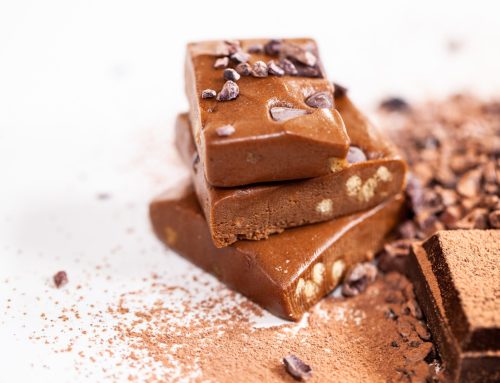“ I find it fundamentally strange that you’re not a dessert person. That’s just weird and it freaks me out!”
– Jess, The New Girl
Can anyone else relate to this!?
In our efforts to be health conscious and avoid added sugars without complete deprivation from the treats we love, it’s no wonder that natural and artificial alternative sweeteners have gotten alot of attention and use lately. But do they work and are they safe?
This quick glance guide is a very shortened version of Chris Kresser’s (ND) E-books called “All About Sweeteners.” It’s a great resource backed by good scientific studies (and it’s free on his website!)
One point- I wouldn’t go out of my way to add these into your diet, but rather using this guide as a swap-out option for what you’re already using. Your taste buds become accustomed to sweet taste and will become less sensitive to it, the more you have.
Is natural sugar (honey, maple syrup, coconut sugar, etc) still the same as table sugar?
- In short- research sides with the use of honey or good quality stevia (see below), over table sugar. Occasional and moderate use of these sweeteners does not pose a threat to those in good health and who follow a diet of unprocessed foods.
HONEY (Concentrated Sweetener):
- Two studies proved that 3-5 Tbs of honey per day increases serum antioxidant levels. It also significantly lowered factors that are related to inflammation
- In overweight and obese patients: 3.5 Tbs of honey per day for one month, lowered LDL cholesterol, triglycerides, and C-reactive protein (inflammatory marker), and increased their good HDL cholesterol.
- Another study showed an decrease in homocysteine (high levels = risk factor for many diseases including heart disease) and blood glucose
- Antibacterial activity which can help shorten symptoms of bacterial infections
- Other potential benefits include antiviral, antitumor and antimutagenic effects
- Contains a good number of enzymes and trace minerals that refined sugar does not. Use raw (local if possible) honey for these benefits
- Contains slightly more calories per teaspoon than sugar, but it’s also sweeter than sugar
- Lower glycemic index than table sugar
- Still recommended to eat in moderation, but does make a nice alternative to table sugar
MAPLE SYRUP, COCONUT SUGAR and MOLASSES (Concentrated Sweeteners):
- All lower glycemic index than table sugar
- All have same basic composition (mixture of sucrose, glucose and fructose)
- Also contain trace amounts of minerals. Molasses containing the most
- Not as much research done on these, overall
- All better alternatives to table sugar
- Agave- Not recommended due to very high concentration of fructose which in excess, can be harmful to the liver
STEVIA (Natural Sweetener):
- Watch out! Most of the stevia you see on the shelf and in products is not a natural product at all. It may be highly processed with numerous chemicals and super concentrated (these methods and products have not been proven to be safe). Marketing is tricky here.
- Natural forms are from plants typically grown in South America
- Calorie free
- 200x sweetener than sugar
- Does not raise insulin like some other non-calorie sweeteners
- May improve blood sugar control
- Does not seem to promote excess calorie consumption like artificial sweeteners
- Would take excessive amounts to cause infertility in humans, if at all. Animal and human research has not proven there to be cause for concern with infertility, although if you struggle with infertility it may be a good idea to avoid

- A good choice for those looking for a non-calorie sweetener or those struggling with blood sugar control
- Here is what you’re looking for in the ingredients list of your stevia: “whole leaf stevia” (powder will be brown/green, not white). Or plant it in your garden! You can use the leaves in your tea, or dry them out and grind them in a spice grinder
- Here is what you don’t want to see: rebaudioside A, stevia extract, dextrose, erythritol, natural flavor (“Stevia In The Raw”, “Pure Via”, “Truvia”)
- Here is a good resource covering how to buy a good quality stevia http://www.100daysofrealfood.com/2013/04/25/stevia-food-babe-investigates/
ARTIFICIAL SWEETENERS:
- Cancer: After looking at the evidence for consumption for humans, no correlations have been found.
- Brain tumors: recent research has not supported this finding in humans
- No correlation proven doesn’t mean there isn’t one- It simply remains to be found. Caution with these products is still warranted
- Increased risk of Diabetes, Heart Disease and Metabolic Syndrome: Testing results are inconsistent with this association. Some studies show a correlation, while some don’t.
- Support Weight Loss: Evidence is inconclusive. Difficult to draw any conclusions
- Numerous animal models do indicate that artificial sweetener and stevia consumption can “confuse” the body and impair the innate ability to regulate calorie intake. Rats fed artificial sweetener vs. table sugar (sucrose) showed increased calorie consumption and gained weight. Interestingly, when taken off the artificial sweetener, the rats did not lose weight. Animal studies do strongly indicate that artificial sweeteners do cause weight gain and altered satiety signaling.
- Human studies are limited in these findings. One study showed a greater rewards response in the brain when consuming artificial sweeteners, which indicates greater cravings for it.
- In summary, there isn’t conclusive evidence to point us in any direction, BUT since these substances are relatively new to the human diet and can be difficult to test accurately without confounding factors, it’s best to avoid until proven safe. There are better alternative out there, like whole fruit, stevia, honey, and learning to reduce your reliance on added sugars overall.
XYLITOL, SORBITOL, AND OTHER SUGAR ALCOHOLS:
- Low calorie, low carbohydrate, low glycemic index
- Naturally occurring in many foods. Low digestibility (thus can be very bad for those with impaired digestion). Look out for increased GI symptoms if consuming
- Equal or less sweet than sugar
- Xylitol has been most researched
- Compared to artificial sweeteners, they are generally accepted as safe. Overall more safe compared to artificial sweeteners. Additional health benefits as well
- Do not affect blood glucose or insulin
- Xylitol may have beneficial effects on blood glucose levels (rat studies)
- Xylitol has beneficial effects on dental health like cavity prevention
- Notorious for causing digestive distress in some people
- Erythritol is the best tolerated sugar alcohol. Too much of any sugar alcohol at once, is more likely to cause GI upset vs. spreading out the amount consumed throughout the day
- GI tolerance can often be reached by increasing consumption slowly over time
SO WHAT SHOULD I DO? Pick a category that best describes you:
If You Want to Lose Weight:
- Avoid foods with added natural sweeteners, or artificial sweeteners. Look to sweeten food naturally with whole fruits for maximal nutrient density.
If You Have Diabetes or Insulin Resistance:
- Same as above- Use real whole fruits. If your blood sugar reacts strongly to fruits, consider good quality stevia powder or sugar alcohols
If You Have Digestive Issues:
- Go with your gut tolerance. Watch out for sweeteners high in fructose like agave. Avoid concentrated sugar in high amounts.
If You’re Prone to Sugar Cravings:
- Stay away from concentrated sweeteners all together- make sure you get enough healthy carbohydrates from plant sources. Also try taking a teaspoon of coconut oil and letting it melt in your mouth when you have a sugar craving. Try eating real whole fruit to satisfy your sweet tooth.
If You Just Want To Optimize Your Health:
- Use whole fruits when possible. In moderation, use any of the natural or concentrates sweeteners from above. Will also ensure that you are avoiding GMO’s from corn and beet derived sugars.
Examples of Good Fruit Based Sweeteners:
- Mashed banana
- Pureed or chopped dates
- Applesauce/ pearsauce
 My office is open for in-person and virtual appointments. Here is the
My office is open for in-person and virtual appointments. Here is the 



